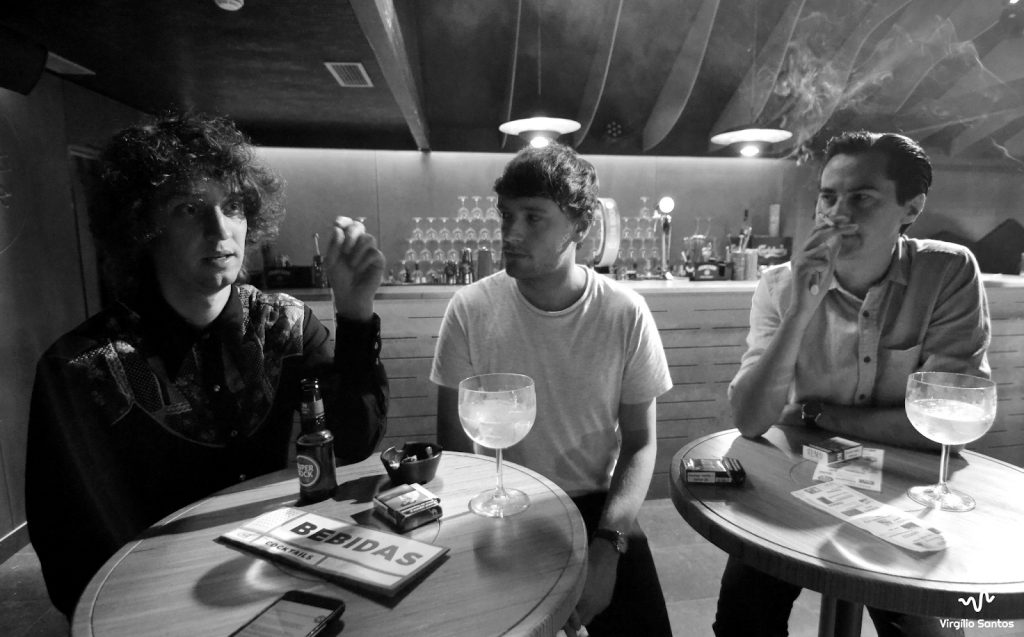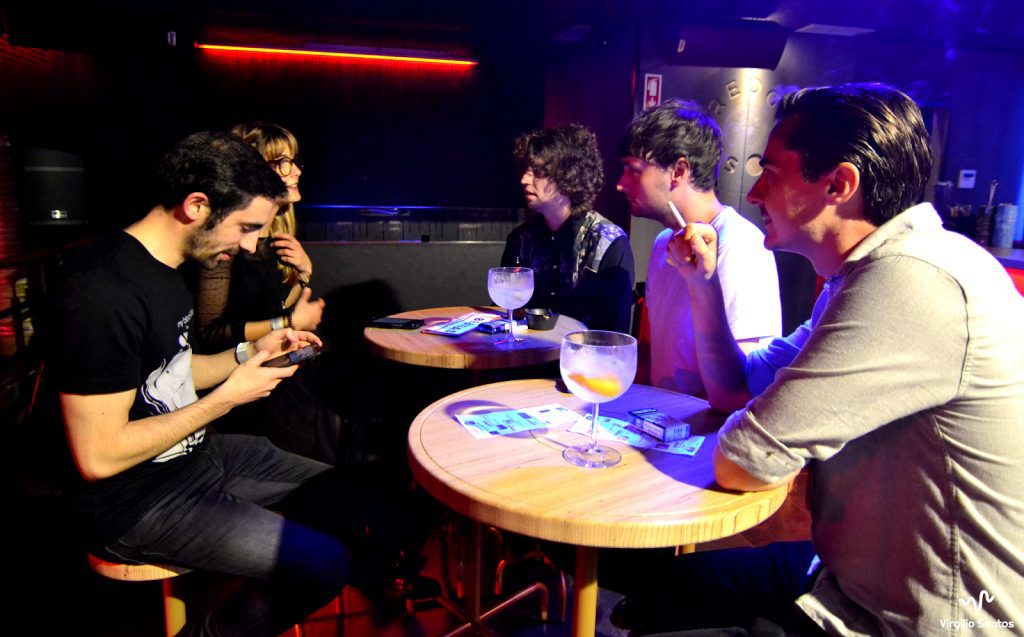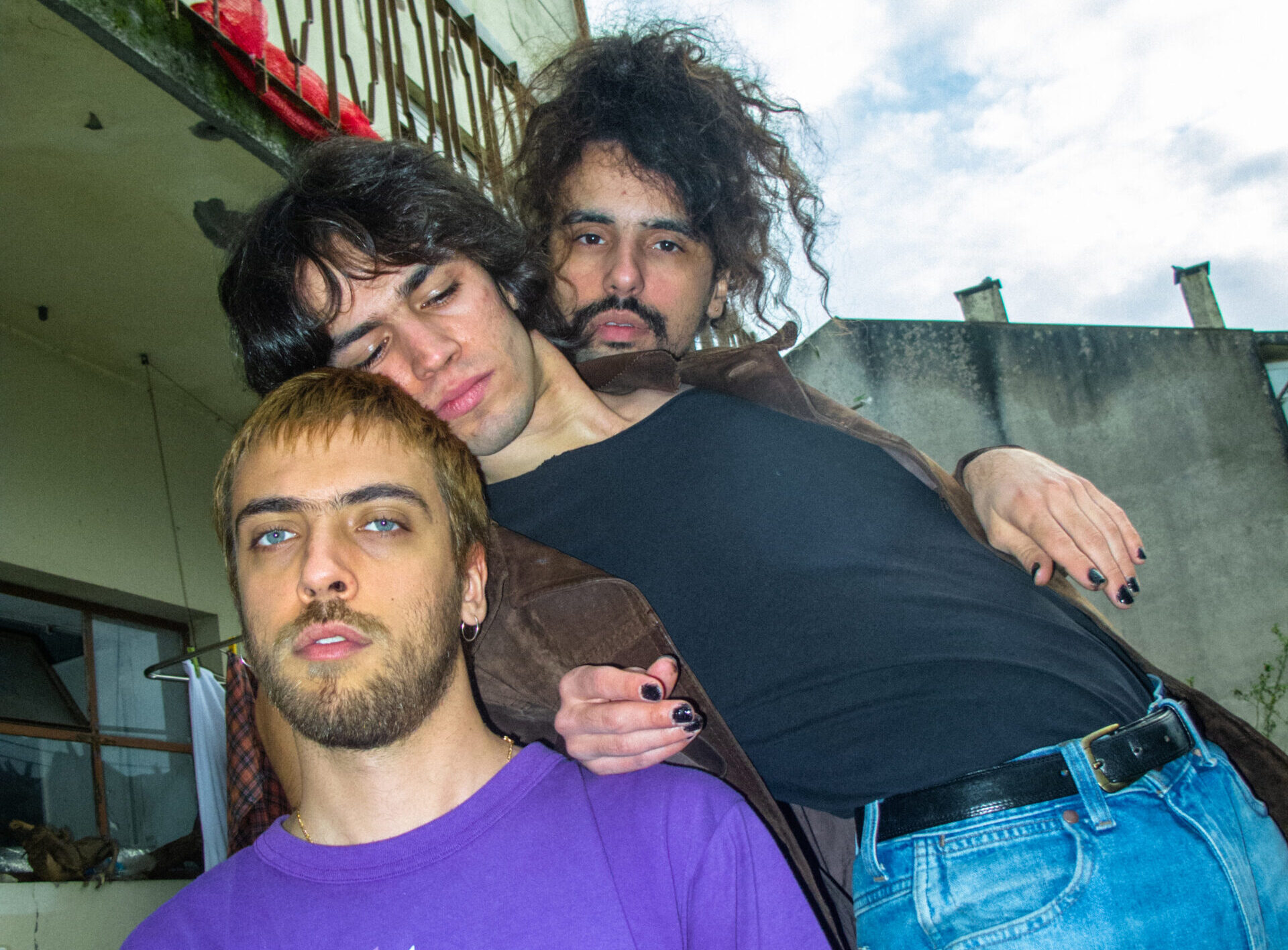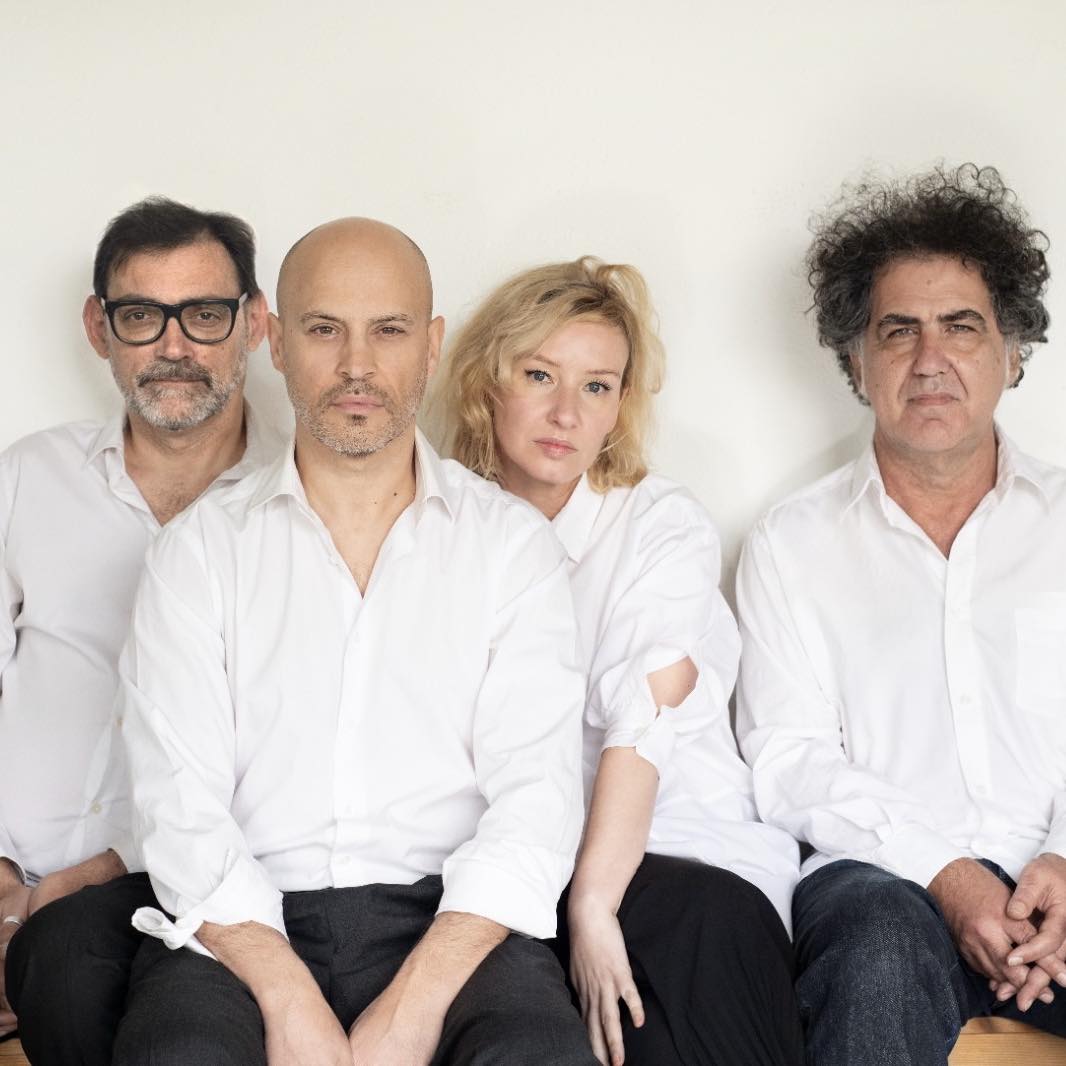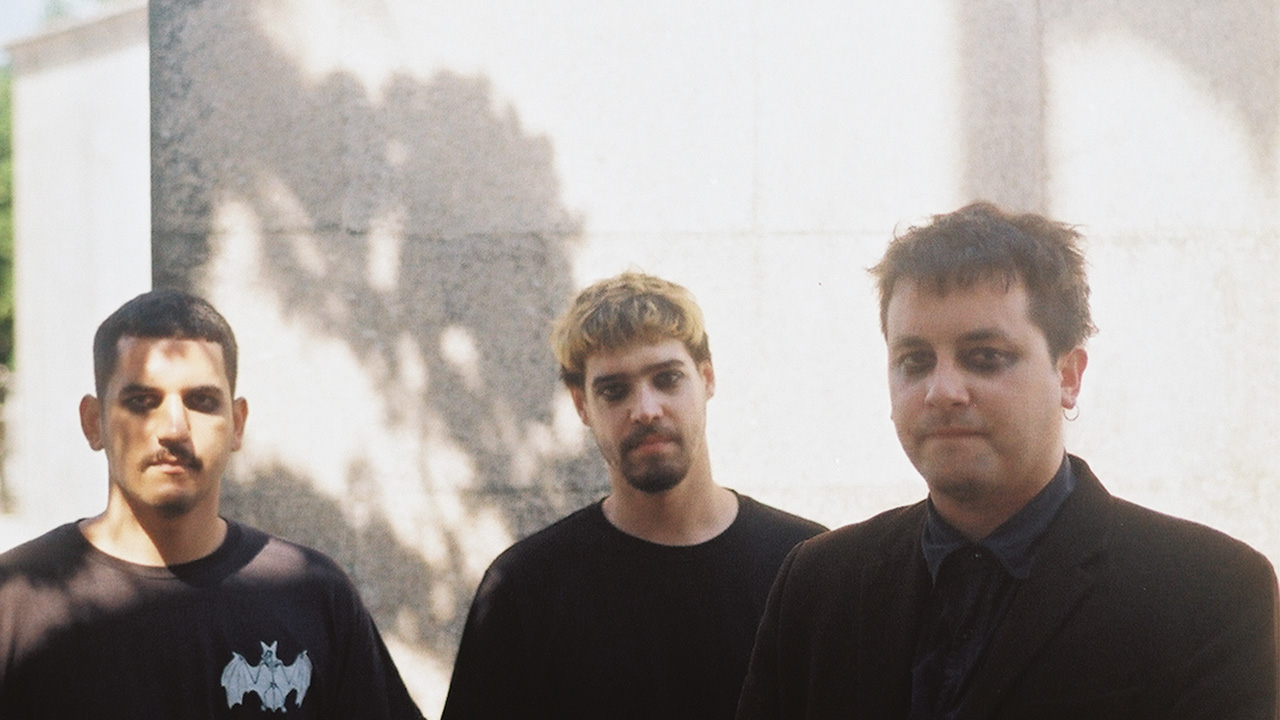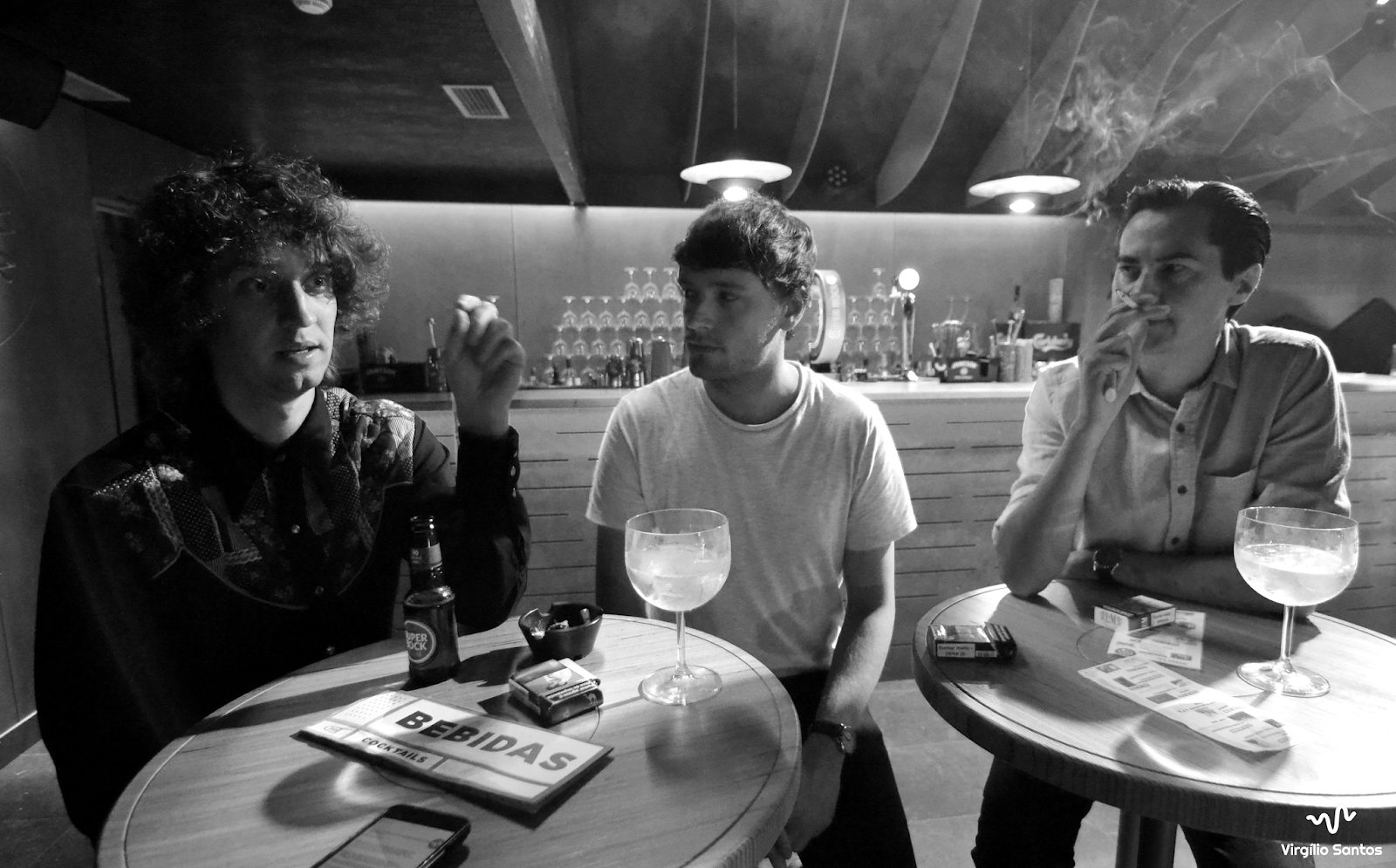
AUTOBAHN in interview: “It’s not very satisfying doing the same record again”
AUTOBAHN in interview: “It’s not very satisfying doing the same record again”

AUTOBAHN in interview: “It’s not very satisfying doing the same record again”
Before their performance at MONITOR, in Leiria on May 26th, we interviewed the Leeds band AUTOBAHN, who has stood out in the post-punk music scene for its characteristic yet equally dynamic sonority. As of now, they released two EP’s – AUTOBAHN 1 (2013) and AUTOBAHN 2 (2014) – two LP’s – Dissemble (2015) and The Moral Crossing (2017) – and the single “The World Around You Is Fractured Somehow” (you can find/buy all the work here).
In this interview, we talked with the singer Craig Johnson, the guitarist Michael Pedel and the bassist Daniel Sleight in order to know the roots of the band, their ideologies, perspectives on the music market, how they got signed to Felte, their thoughts on the digitization of the music, among other things. If you want to know them better, you should definitely read the full interview below.
Craig – I think when we started, some of our friends were probably in decent bands like Eagulls and Hookworms, and they were doing really well. We were just good friends with them and we thought that we should probably make a band as well, one band as good as theirs. When we started we probably spent about three months just trying to get something who sounded really good. Then we played a couple of shows. We were really lucky, the label (Tough Love) we are still on now, they saw our name in an Eagulls poster, they got in touch with us and we released our first EP, AUTOBAHN 1. And we just went from there, really. It’s been very good. The team of Tough Love records puts lots of stuff out, they are really great guys. It’s really hard for bands to stand out in the UK. There’s quite a lot of good bands there but they don’t have a label to release something. They end up putting out the albums themselves.
Were you friends at school, for instance?
Michael – Three of us were at same school. The other guitarist we already knew and then we met the drummer in a bar in Leeds, that’s how we formed. He was a glass collector, he used to take our drinks. He is very young and enthusiastic. (laughs)
Who Are Autobahn?
Craig – A really good group of friends who probably wanted a bit more out of life than just Leeds, you know?
Michael – We are from a small town outside of Leeds and we all moved to Leeds.
Craig – When we all moved to Leeds we just wanted to make quite good music. For me, it was really an important way to express myself. Life can be quite mundane without music.
You released your first record Dissemble in 2015 through Tough Love Records, and this new record, The Moral Crossing, not only through Tough Love but also on Felte Records. How did you get signed to Felte Records?
Craig – We played South by Southwest (SXSW) at a stage where it was like half Felte Records and half Part Time Punks. I think they knew us from that and they just got in touch about the record.
Besides those records, there are also two EP’s released at the beginning of your career. How did you start doing things? Was it hard for you to get signed with some label, to sell records, to get known? I only met you with Dissemble.
Craig – We’ve been with the same label throughout and we got really lucky with their support. It was definitely hard to write records when we first started. The second EP was really difficult.
Michael – The first one came to us quite easily.
Craig – We were just enjoying our gigs and then we realized we had to make more music. The album was also very difficult, really dedicated. Each record is being a different challenge to make. The first EP was like making a record with a new band. The second one it’s quite grind to be honest, I’m not a massive fan of that record. The first album we didn’t know how to write an album, so we started working on that. With the new album, we built a recording studio and record it ourselves. We built it from scratch, I learned how to record and I don’t know how we managed to do that.
Michael – We had a lot more time on the second record. In the first, we recorded the songs together.
Did you have a musical education?
Daniel – Liam (drummer) did.
Craig – All of us started working at the school. We never went to university. To all of us, I think it’s just from enjoying music to listening to lots of music.
I was listening to your records and I guess you have a very particular thing. When I listen to your drummer, the percussion is so characteristic. It’s like the drums were made for you.
Craig – Yes, especially on the last record. We made it and it was the fall front of the music, which is a bit different from putting the drums high up in the mix, people tend to do that. It was really important for us, we were just trying to do something different. I really pushed him to make something incredible. Sort of drum loops, really, and I think it worked out quite well. I really like the drums in the last record and I see it as smart as well, because we listened to a lot of records and how the people record, they do things like sections. The drums for us have always been one or two takes.
How was it to play on Wave Gotik Treffen? How did you get invited?
Michael – It was just our booking agent. We played there last weekend and had a great time.
Craig – It was fantastic. It was like in a big dome, amazing building. The room was so reverberated, which is quite hard to play actually, but it was amazing. We meet very nice people. I’ve never seen anything like it. We got to see Jesus and the Mary Chain, which was really good, also The KVB. We had a really good time. It’s massive Leipzig, it’s really weird and also very quiet. And all of the sudden all this gothics appear.
Michael – Everyone is inside. (laughs)
Craig – It’s funny as well because it was like really sunny and we were: “Ohh, too much light!” (laughs). There were also some weird things like some people dressed in some good stuff.
Do you consider yourselves a revolutionary/political band? (for instance singles like “Society” made me wondering).
Craig – I wouldn’t say necessarily political. “Society” is about a guy I knew when I was about 17. He tried to stab me to death. Like he jumped from the top of the stairs to stab and he ended up going a bit mad. I think he’s still on pills today. It’s really about, for me, how someone who is quite ordinary and all of the sudden, he probably didn’t have enough support for him, like generally. He kind of went off the roads and I felt like if he had the support he probably needed he could probably have a different line in life. I think “Society” is really about general society in the UK. I think sometimes people don’t really pay attention to people as much as they should be. Maybe it’s a bit political without having a political message.
What are your thoughts on this issue of digitalization in the music market? For instance, the streamings, pre-orders, the leaks, etc…. Do you feel that this affects you positively or negatively?
Michael – I think it’s a bit of both, isn’t it? A lot more people have access to your music. We got Spotify, Apple Music. Record sales have obviously fallen.
Daniel – I think it makes people thinking differently about putting out a record because there is always the possibility of getting leaked.
Craig – I think the market is a lot more saturated now. There’s a lot more stuff out there, not necessarily good stuff, something people have never heard of, but there’s also good stuff as well. I use Spotify and buy records as well. I think it’s just like with the time, things move on, things are available in day-to-day life. We don’t really push much on that social sort of stuff. It is not that appealing to us, it’s just something we maybe have to do, but we never push for that. Some people really sell out, don’t they? I like to leave my Facebook and Instagram, I try to forget about all that stuff now.
Daniel – The fact that’s more accessible music must be a good thing. You hear a song somewhere, someone mentions it in a bar and then Boom, you’ve downloaded it.
Craig – I think you can. You know when we were at school, I loved to nick a CD and listen to it at home (laughs).
Daniel – I like to have something in my hands, something I can see.
Michael – Yes, the physical copy.
Craig – I used to nick a CD and I talked about it and listen to it. Which now is so easy, so accessible. I think it works both ways.
Michael – It’s nice to play a record all the way through.
Craig – I don’t know, really. It’s a weird one. I don’t think anyone can answer that. What do you think?
I think it’s good for a band, for instance, if you are a new band and you want to enter the market, I think it allows you to reach more people and have the opportunity to be known and people can go to your shows. However, it has the negative side, when you are a small band you don’t make money from record sales.
Craig – I think with sales, depends on who you are, but it maybe affects record labels more than affect us. Obviously, to make more money, but at the same time, it’s never been our cult to makes lots of money. We make nothing through streaming.
Michael – A lot less than one pence.
On one hand, you are known by a lot of people and you can do a lot of shows. On the other hand, you don’t sell as many albums as you want.
Craig – We don’t make as much as Oasis did (laughs).
Nowadays it’s really hard to live only from the music.
Craig – Yes, very difficult.
Daniel – I guess we have ever really known one way as well. We have been around this modern era and we haven’t sold a lot of CDs.
Craig – The way we ever make more money is with shows.
Michael – And also merchandise.
How do you combine the agendas of five people for rehearsals, tours, and all these collaborative tasks?
Craig – For a record, what usually happens is: I sit down to think about the sound of it and then we talk about it, again and again. We usually decide the sort of things we will do in the record. From there we think about how we do that. With the last record, we thought about loops and stuff, also synths and drums all over it. The last record was much more structured. When we do the next sort of thing, we will get some new ideas on how to do that. It’s just usually based around something. For me, I hate doing the same thing. It’s not very satisfying doing the same record again. I want to do something different, something needs to change. The next record will be different again…
I really love that. This way you don’t lose your identity, you’re just doing different things.
Craig – A lot of bands are more concerned about their next record not selling, but for me, it’s so boring doing the same thing, I just get bored (laughs). There are only a few bands who’ve done the same sort of stuff which I really like.
The last concert you’ve seen live and the last record you’ve listened to?
Michael – We saw Jesus and Mary Chain last week.
Daniel – For me it’s Ought. They are really nice.
Did you enjoy the last record?
Craig – I found it really interesting, really enjoyable. I know a few people didn’t really like it but I really enjoyed. The first record is a bit challenging, I really like that. The last record I listened to was the new Iceage album. I listened to a lot of The Pogues at the moment, makes you wanna drink whiskey. I love that album, Rum Sodomy & The Lash.
Do you prefer the latest album of Iceage or other ones?
Craig – I was probably around watching Iceage gigs when they released the first record. I love those two first records. I really like the new record, it’s interesting, really good and a little bit different.
Did you like their shows? I’m just asking that because couple weeks ago I interviewed Whispering Sons and the guitarist said that he loved them on studio and he didn’t get the click in their live performances.
Craig – A lot of people say that. Depends how drunk they are, I think (laughs). They’re still good. They were very young when they started, more like 17 or something, but yeah good band.
Daniel – It’s probably pretty shameful but I think the last record I listened to was the last one from Arctic Monkeys. I hated it at first and now I like it. I like 50% of it.
Craig – I can’t stand them.
Michael – My last record was the Limiñanas. It’s amazing.
We are finishing the interview, would you like to say anything for your fans in Portugal?
Craig – It was really nice to be here. I have never been to Portugal. We brought the weather with us (laughs).
Michael – We have been up to the castle today as well.
We have a gothic festival here in the castle. Iceage played there!
Craig – How do you get up there with all your stuff? That must be a nightmare. Where do you play in the castle? Is it like a big room?
Fade In set up stages in the free spaces. There’s also an “abandoned” church with really good acoustic. Thank you so much for the interview, you’re really nice!
AUTOBAHN – Cheers!
